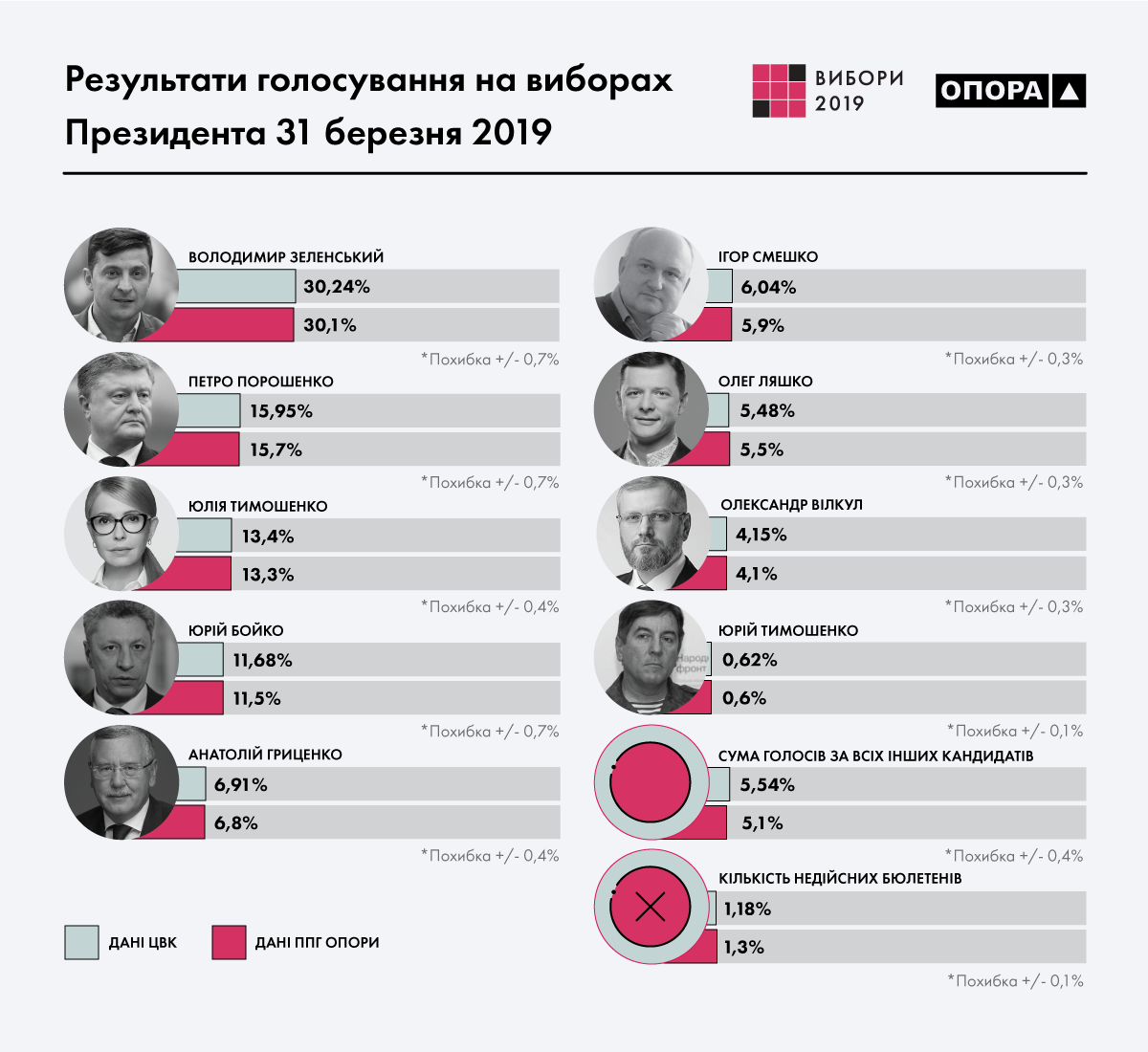The Central Election Commission has signed final tabulation protocols for election of the President of Ukraine held on 31 March 2019, and announced the second tour to be held on 21 April 2019.
According to the election outcome, Volodymyr Zelenskyi and Petro Poroshenko received the biggest number of votes – 30.24% and 15.95% respectively.
It should be mentioned that official data from the Central Election Commission has almost coincided with results of parallel vote tabulation realized by OPORA.

The CEC has also approved the text in ballots for the second round on 21 April 2019. Thus, the ballot paper for the second round will be printed only on one side in the state language on a single paper 200 x 150 mm of a blue color with two-tone watermark, protective fibres, and graphic anti-scan elements applied.
Besides that, Head of the CEC Tetiana Slipachuk has informed on the briefing that it's possible to change the voting location starting on 8 April. This procedure will be available until 15 April inclusive. According to the Head of the CEC, State Voter Register maintenance bodies will be open on weekends.
You are welcome to read full text of OPORA's statement on preliminary election observation results of 31 March 2019 Presidential election in Ukraine.
Reference: OPORA's observation is aimed at impartial assessment of election administration, facilitation of free and fair election, and prevention of violations. In October 2018, Civil Network OPORA has launched a wide-scale observation of Presidential election in Ukraine. Thus, 204 observers have been deployed to each part of Ukraine since the official start of election campaign. Over 1,500 short-term observers will join them on 31 March 2019, and in the second round if it is held. They will also realize a parallel vote tabulation (PVT), aimed to receive election results faster and more accurate than exit-polls. Besides that, we monitor the use of budget resources for indirect campaigning, train law-enforcement bodies on peculiarities of election process, deployed a network of electoral rights ombudsmen, assessed Ukraine's realization of recommendations from international missions concerning the electoral reform, and conduct a voter awareness campaign.
